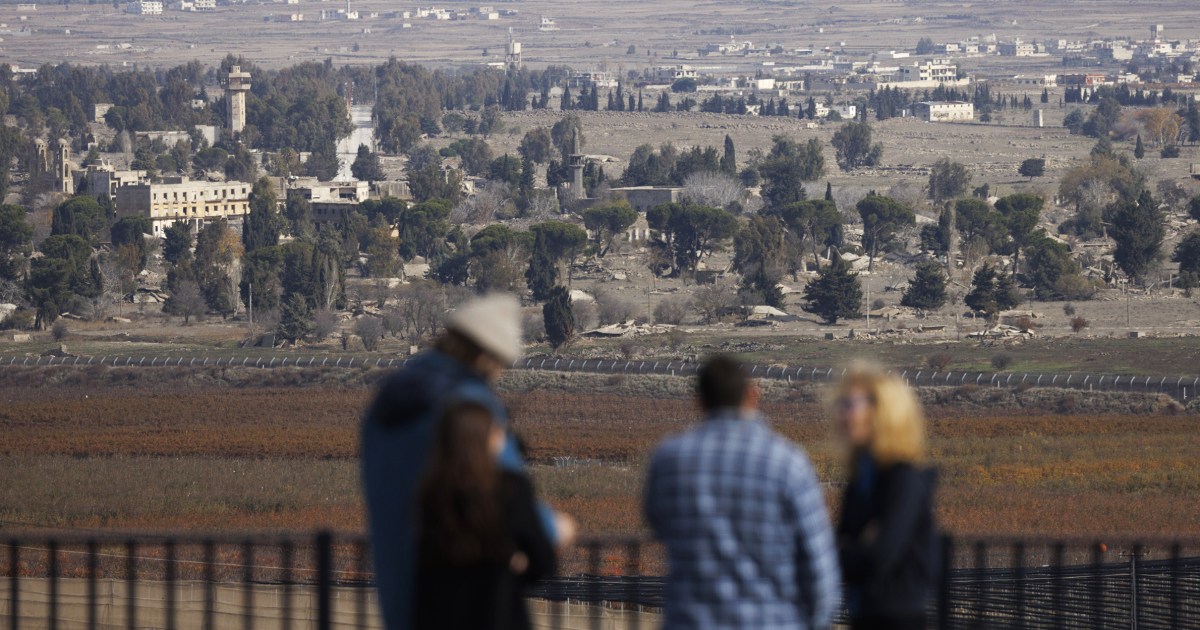Israel’s Golan Heights Population Strategy: A Response to Regional Turmoil
As the Syrian conflict continues to unfold, Israel has announced a bold initiative aimed at doubling the population of the Golan Heights. This ambitious plan comes amid ongoing airstrikes that have left the region in turmoil, raising crucial questions about the implications for regional stability and international relations. Israel’s strategy not only seeks to strengthen its demographic presence in the Golan Heights but also underscores the broader geopolitical dynamics at play in the Middle East.
The Context of the Golan Heights
The Golan Heights, a strategically significant plateau, was captured by Israel during the Six-Day War in 1967 and subsequently annexed in 1981, a move that has not been recognized by the international community. This territory has been a focal point of Israeli security policy, especially given its vantage point overlooking northern Israel and its proximity to Syria, which remains a hostile neighbor.
In recent years, the ongoing Syrian civil war has exacerbated the complexities of the region. The conflict has led to a humanitarian crisis, with millions displaced and various factions vying for control. Israel’s strategic interests have led to a series of airstrikes aimed at thwarting Iranian entrenchment in Syria and preventing the transfer of advanced weaponry to Hezbollah, the Lebanese militant group.
Israel’s Population Doubling Initiative
In light of these challenges, Israel’s government has unveiled plans to significantly increase the population of the Golan Heights from approximately 50,000 to 100,000 residents over the next several years. The initiative includes various incentives designed to attract new residents, including:
- Financial Incentives: The government plans to offer subsidies and tax breaks for families willing to relocate to the Golan Heights.
- Infrastructure Development: Investment in housing, schools, and healthcare facilities to accommodate the growing population.
- Job Creation: Initiatives aimed at boosting local employment opportunities, particularly in agriculture and tourism.
This strategy reflects Israel’s long-term vision of solidifying its presence in the Golan Heights and countering any potential threats from Syria. By increasing the population, Israel aims to reinforce its claim to the territory and establish a more permanent settlement pattern.
Geopolitical Implications
The implications of this population strategy are profound. Firstly, it could further complicate Israel’s relationship with Syria and the broader Arab world. The Syrian government, led by Bashar al-Assad, has consistently claimed the Golan Heights as Syrian territory, and Israel’s expansionist policies may provoke a strong response. Furthermore, the international community, particularly countries aligned with the Arab League, may view this initiative as an illegitimate attempt to alter the demographic balance in the region.
Secondly, this plan raises concerns about the potential for increased tensions with neighboring Lebanon, where Hezbollah maintains a significant military presence. The fortified Israeli population in the Golan could lead to heightened military confrontations, particularly if Hezbollah perceives this demographic shift as a direct threat to its operations and influence in southern Lebanon.
The Humanitarian Perspective
While Israel’s initiative may be seen as a strategic necessity from a security standpoint, it also raises ethical and humanitarian questions. The ongoing conflict in Syria has created a dire humanitarian crisis, with millions of refugees fleeing violence and instability. Some critics argue that Israel’s focus on settlement expansion in the Golan Heights diverts attention from the urgent need to address the humanitarian needs of Syrian refugees and the plight of those affected by the war.
Moreover, there are concerns about the treatment of the Druze community living in the Golan Heights, who have historically maintained a distinct cultural and national identity. As Israel seeks to increase its Jewish population in the region, the implications for the Druze, who primarily identify with Syria, may lead to social tensions and a crisis of identity.
International Reactions
The international community has reacted cautiously to Israel’s announcement. Some countries have reiterated their support for Syria’s territorial integrity, while others have emphasized the need for a peaceful resolution to the ongoing conflict. The United Nations has historically been critical of settlement expansion in occupied territories, and this situation may prompt renewed discussions at international forums.
Additionally, the United States’ stance on this issue could significantly impact the regional dynamics. As a key ally of Israel, the U.S. has often supported its policies; however, the Biden administration has also expressed a desire to engage diplomatically with Syria and address humanitarian concerns. Balancing these interests will be crucial as Israel moves forward with its population strategy.
The Future of the Golan Heights
As Israel embarks on this ambitious plan to double its population in the Golan Heights, the future of the region remains uncertain. Several factors will influence the outcome of this initiative:
- Security Dynamics: The ongoing threats from Iranian influence and militant groups in Syria will shape Israel’s military and settlement strategies.
- Regional Relations: Diplomatic efforts with neighboring countries, particularly Syria and Lebanon, will play a critical role in determining the stability of the Golan Heights.
- International Pressure: Potential backlash from the international community could impact Israel’s ability to implement its plans effectively.
Conclusion
Israel’s plan to double the population of the Golan Heights is a bold and controversial strategy that reflects the complexities of the region’s geopolitical landscape. As airstrikes continue to rattle Syria and the humanitarian crisis deepens, the implications of this initiative will reverberate throughout the Middle East. Balancing security needs, ethical considerations, and international relations will be essential for Israel as it navigates this challenging terrain. The coming years will reveal whether this ambitious population strategy will strengthen Israel’s claim to the Golan Heights or exacerbate tensions in an already volatile region.
See more BBC Express News

